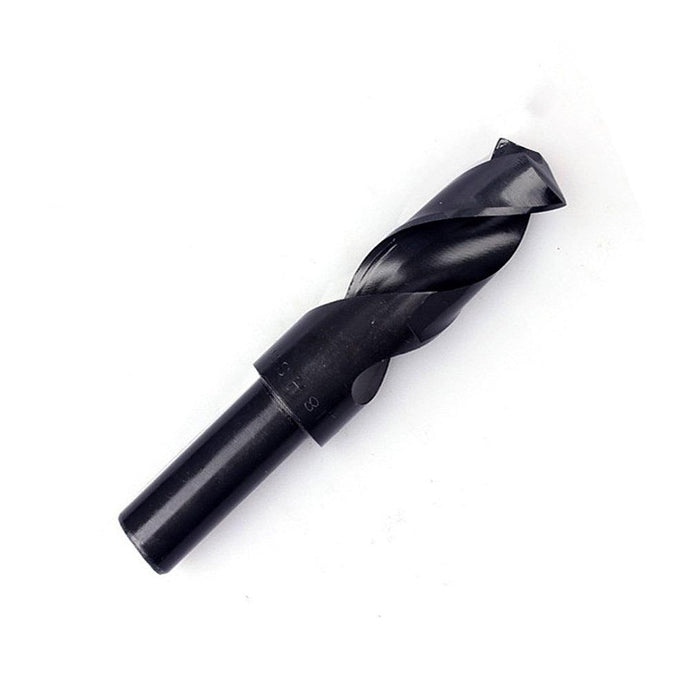Exploring the Versatility and Precision of Long Twist Drill Bits
Long twist drill bits are an essential tool in the world of drilling, known for their extended length and capability to handle deeper holes than standard drill bits. Whether you're working with wood, metal, plastic, or other materials, these drill bits offer enhanced flexibility and precision, making them invaluable for a range of professional and DIY applications. Their design allows them to reach greater depths without needing to reposition the workpiece, providing efficiency and accuracy in drilling long, clean holes.
The most significant feature of long twist drill bits is their extended length. Traditional drill bits often fall short when drilling through thick or long workpieces. Long twist drill bits solve this problem by offering extra length, allowing them to drill deep into materials without the need for multiple passes. This makes them perfect for jobs like drilling through long beams of wood, thick pipes, or structural materials where the hole must extend several inches or more. The added length not only improves the reach but also enhances the accuracy and consistency of the hole, reducing the need for manual adjustments during drilling.
Long twist drill bits are available in various sizes, materials, and coatings, each designed for specific tasks. For woodworkers, they can easily drill deep pilot holes for screws or dowels, while in metalworking, they are ideal for creating deep holes for fasteners or threaded inserts. The versatility of these drill bits is further amplified by the range of materials they can handle. For softer materials like wood or plastic, standard steel or high-speed steel (HSS) long twist bits are often sufficient. For tougher materials like stainless steel, cast iron, or aluminum, cobalt or carbide-tipped versions of long twist drill bits are preferable, as these materials offer superior durability and heat resistance.
One of the most valuable characteristics of long twist drill bits is their spiral design. The twisted shape of the bit allows for efficient chip removal during drilling. As the drill bit rotates, the chips are pulled upward through the spiral channels, which reduces friction and heat buildup. This design not only makes the drilling process faster and more efficient but also helps extend the life of both the bit and the workpiece. Proper chip removal is essential for achieving clean, precise holes, and long twist drill bits excel in this area due to their deep flutes and wide spiral channels.
The precision of long twist drill bits also comes from their sharp, well-formed tips. These bits are often ground to a point that enables them to start drilling quickly, even in harder materials. Their ability to maintain sharpness over extended periods ensures that the drilled hole remains smooth, clean, and consistent in diameter. This is crucial when creating holes for fasteners or fittings, as irregularities in the hole size can lead to poor fits and potentially compromise the overall integrity of the project.
Another advantage of long twist drill bits is their ability to maintain alignment during the drilling process. Unlike shorter drill bits, which can wander or veer off course as they penetrate deeper into the material, long twist bits remain centered, ensuring that the hole remains straight and true. This is particularly important in applications like drilling dowel holes for furniture or creating accurate holes for plumbing or electrical installations. Long drill bits help reduce the risk of errors, providing greater reliability in the finished product.
While long twist drill bits offer numerous advantages, they do require some consideration when being used. Due to their extended length, these drill bits may flex or bend under certain conditions, especially when drilling through harder materials. To prevent the bit from deflecting or breaking, it's important to apply consistent, moderate pressure while drilling and to ensure that the drill is properly aligned with the hole. Additionally, because long drill bits create deep holes, it's essential to periodically withdraw the bit from the hole to clear any accumulated chips, which can hinder performance if left unchecked.
Another point to consider is the type of drill being used. Long twist drill bits are typically used with drills that have sufficient power to drive the bit and maintain consistent speed, especially when drilling through dense or tough materials. Using the wrong type of drill can result in slower speeds, overheating, or premature wear on the bit. For optimal results, ensure that your drill has a high enough torque to handle the demands of deep drilling.
Maintenance of long twist drill bits is relatively simple, but it is crucial to extend their lifespan and maintain their cutting efficiency. After each use, it's important to clean the bit thoroughly to remove any material buildup. This can be done with a wire brush or compressed air. Regularly inspecting the bit for signs of wear, such as dullness or chipped edges, ensures that you can replace or resharpen the bit before it causes damage to your workpieces.
Long twist drill bits are an indispensable tool for anyone who needs to create deep, precise holes in a variety of materials. Their versatility makes them ideal for a wide range of applications, from woodworking to metalworking, and their ability to remove chips efficiently ensures smooth, clean holes every time. Whether you're a seasoned professional or a weekend hobbyist, having a set of high-quality long twist drill bits in your toolkit can make a significant difference in the quality of your work. With the right care and usage, these drill bits provide reliable, accurate results that enhance the precision and efficiency of your projects.
